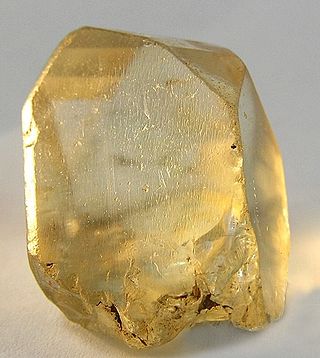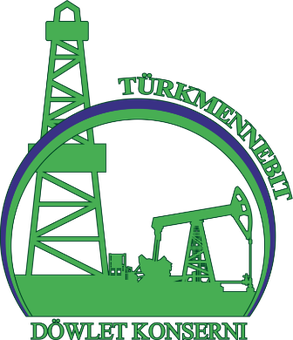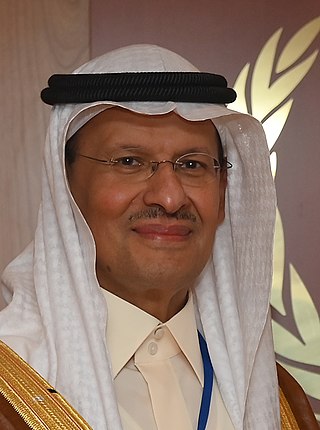
The first independent Ministry of Petroleum was established in March 1973, to manage the political role of petroleum resources before the war of 1973. In view of the strategic significance of the Ministry's existence as a political body that sets the general petroleum strategies on new bases to go in line with the requirements of the country at this stage. On top of its priority list, is to provide the local market needs of petroleum products, petrochemicals and mineral resources, and to contribute to achieving the targeted growth rates of the national economy.

The Ministry of Petroleum (MOP) (Persian: وزارت نفت, romanized: Vezârat-e Naft) manages the oil industry, the producer of oil and petrochemical products. MoP is in charge of all issues pertaining to exploration, extraction, exploitation, distribution and exportation of crude oil and oil products. In addition, according to the "Imports and Exports Regulation Act", issuing import licenses for such products is also among the functions of the Ministry of Petroleum. The ministry has been placed under sanctions by the United States Department of State as of 2020.

The Ministry of Petroleum and Natural Gas (MOP&NG) is a ministry of the government of India responsible for the exploration, production, refining, distribution, marketing, import, export, and conservation of petroleum, natural gas, petroleum products, and liquefied natural gas in the country. The ministry is headed by the Cabinet Minister Hardeep Singh Puri. M. M. Kutty is the Secretary of the Ministry. Dharmedndra Pradhan serving as the minister from 26 May 2014 to 7 July 2021 is the longest serving minister till date.
The National Oil Corporation is the national oil company of Libya. It dominates Libya's oil industry, along with a number of smaller subsidiaries, which combined account for around 70% the country's oil output. Of NOC's subsidiaries, the largest oil producer is the Waha Oil Company (WOC), followed by the Arabian Gulf Oil Company (Agoco), Zueitina Oil Company (ZOC), and Sirte Oil Company (SOC).

The mining of minerals in Nigeria accounts for only 0.3% of its gross domestic product, due to the influence of its vast oil resources. The domestic mining industry is underdeveloped, leading to Nigeria having to import minerals that it could produce domestically, such as salt or iron ore. The rights to ownership of mineral resources is held by the Federal Government of Nigeria, which grants titles to organizations to explore, mine, and sell mineral resources. Organized mining began in 1903, when the Mineral Survey of the Northern Protectorates was created by the British colonial government. A year later, the Mineral Survey of the Southern Protectorates was founded. By the 1940s, Nigeria was a major producer of tin, columbite, and coal. The discovery of oil in 1956 hurt the mineral extraction industries, as government and industry both began to focus on this new resource. The Nigerian Civil War in the late 1960s led many expatriate mining experts to leave the country. Mining regulation is handled by the Ministry of Solid Minerals Development, who are tasked with the responsibility of overseeing the management of all mineral resources in Nigeria. Mining law is codified in the Federal Minerals and Mining Act of 1999. Historically, Nigeria's mining industry was monopolized by state-owned public corporations. This led to a decline in productivity in almost all mineral industries. The Obasanjo administration began a process of selling off government-owned corporations to private investors in 1999. The Nigerian Mining Industry has picked up since the "Economic Diversification Agenda", from Oil & Gas, to Agriculture, Mining, etc., began in the country.
In 2006, Cambodia's mineral resources remained, to a large extent, unexplored. Between 2003 and 2006, however, foreign investors from Australia, China, South Korea, Thailand, and the United States began to express their interest in Cambodia's potential for offshore oil and gas as well as such land-based metallic minerals as bauxite, copper, gold, and iron ore, and such industrial minerals as gemstones and limestone.

Khalid A. Al-Falih is Minister of Investment of Saudi Arabia since 25 February 2020. He served as Minister of Energy of Saudi Arabia and chairman of Saudi Aramco. He also has previously served as the Saudi Arabian Health Minister and Aramco's CEO.

Türkmennebit, also known by the translation of the name as Turkmenoil or Turkmenneft, is the national oil company of Turkmenistan. It was established by a presidential decree reorganising parts of the former Ministry of Oil and Gas in July 1996, and has its headquarters in Ashgabat. The chairman of the company is Guychgeldi Baygeldiyev. The main oil fields operated by Türkmennebit are Goturdepe, Barsa-gelmez, Nebitdag, Körpeje, Gamyşlyja, Çeleken and Kemer, mainly in Balkan Province near the Caspian Sea.

The Ministry of Investment, Trade and Industry, abbreviated MITI, is a ministry of the Government of Malaysia that is responsible for international trade, industry, investment, productivity, small and medium enterprise, development finance institution, halal industry, automotive, steel, strategic trade. The ministry has its headquarters located at Menara MITI on Jalan Sultan Haji Ahmad Shah in Kuala Lumpur and the building is also a component of Naza TTDI’s 75.5-acre KL Metropolis, a mixed development that is envisioned to be the International Trade and Exhibition District for Kuala Lumpur. It is one of the three ministries that has not moved to Putrajaya.

The Ministry of Energy and Minerals (MEM) is the governmental body in the Sultanate of Oman responsible for developing and implementing the government policy for exploiting the oil and gas resources in Oman.

Iraq was the world's 5th largest oil producer in 2009, and has the world's fifth largest proven petroleum reserves. Just a fraction of Iraq's known fields are in development, and Iraq may be one of the few places left where vast reserves, proven and unknown, have barely been exploited. Iraq's energy sector is heavily based upon oil, with approximately 94 percent of its energy needs met with petroleum. In addition, crude oil export revenues accounted for over two-thirds of GDP in 2009. Iraq's oil sector has suffered over the past several decades from sanctions and wars, and its oil infrastructure is in need of modernization and investment. As of June 30, 2010, the United States had allocated US$2.05 billion to the Iraqi oil and gas sector to begin this modernization, but ended its direct involvement as of the first quarter of 2008. According to reports by various U.S. government agencies, multilateral institutions and other international organizations, long-term Iraq reconstruction costs could reach $100 billion (US) or higher.

The Ministry of Energy is a government ministry in Saudi Arabia and part of the cabinet. It is responsible for developing and implementing policies concerning petroleum and related products. The Ministry of Energy is working to diversify the national energy mix used in electricity production, increasing the share of natural gas and renewable energy sources to approximately 50% by 2030 while reducing the use of liquid fuel.

The Nepalese Ministry of Minister of Industry, Commerce and Supplies is a governmental body of Nepal to monitor and manage industries of the country.

The Ministry of Petroleum and Natural Resources Divisionوزارت پیٹرولیم و قدرتی وسائل, wazarat-e- petroleum o qudrati wasail is a Pakistan Government's federal and executive level ministry responsible to ensure availability and security of sustainable supply of oil and gas for economic development and strategic requirements of Pakistan and to coordinate development of natural resources of energy and minerals.
The petroleum industry in Syria forms a major part of the economy of Syria. According to the International Monetary Fund, before the Syrian Civil War, oil sales for 2010 were projected to generate $3.2 billion for the Syrian government and accounted for 25.1% of the state's revenue.

The Federal Ministry of Petroleum Resources is a part of the Federal Ministries of Nigeria that directs petroleum resources and its activities in Nigeria. The President, Bola Tinubu is the current minister of petroleum.
The Ministry of Oil Industry was a government ministry in the Soviet Union.

The Petroleum and Submarine Pipe-lines Act 1975 was an act of the Parliament of the United Kingdom which addressed the licensing, ownership, exploitation, production, transportation, processing and refining of petroleum and petroleum products in the UK. Enacted in 1975 when the UK’s first North Sea oil was produced, the act aimed to provide greater public control of the oil industry. The act established the British National Oil Corporation and a National Oil Account; modified the conditions of petroleum licences; controlled the construction and use of underground pipelines; and controlled the development of oil refineries.

Gabriel Mbega Obiang Lima is an Equatorial Guinean politician who has served as Minister of Finance, Economy and Planning since february 2023. He previously served as Minister of Mines and Hydrocarbons of Equatorial Guinea.
Bassam Tohme is a former Minister of Oil and Mineral Resources of Syria.
















